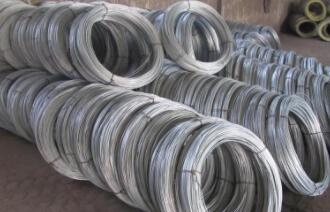When it comes to drywall installation, one of the critical elements is selecting the appropriate length of drywall screws. Choosing the right length ensures a secure and durable installation, preventing future issues such as sagging, cracking, and separation. In this article, we will discuss the factors to consider when choosing the length of drywall screws, as well as guidelines to help you make the right decision.
First, it’s essential to understand the structure of drywall. Standard drywall sheets typically measure 1/2 inch thick, though there are other thicknesses available, such as 5/8 inch for fire-rated walls and 1/4 inch for ceilings or curved surfaces. The thickness of the drywall significantly influences the length of the screws you should use. A general rule of thumb is to use screws that penetrate the stud at least 3/8 inch to provide sufficient grip.
For 1/2 inch drywall, the most commonly used screw length is 1 1/4 inch. This length is designed to penetrate the drywall and securely anchor into the stud without risking damage to the surface or excessive protrusion. If you are working with 5/8 inch drywall, a 1 5/8 inch screw is often recommended. This extra length allows for the additional thickness while ensuring proper anchorage.
In addition to drywall thickness, consider the type of framing you are working with. For wood studs, drywall screws can easily grip the wood fibers. However, if you are installing drywall on metal studs, it's crucial to use self-drilling screws. These screws have a sharp tip that allows them to penetrate the metal without the need for a pilot hole. A length of 1 1/4 inch works well for 1/2 inch drywall on metal studs, similar to wood.
what length drywall screws to use

Another important consideration is the specific application. For ceilings, you may want to use shorter screws to ensure they don’t protrude and create bumps or uneven surfaces. A 1 inch screw is often sufficient for 1/2 inch ceilings. When hanging drywall vertically versus horizontally, the orientation might slightly affect screw placement but doesn’t necessarily change the screw length required.
Moreover, it’s wise to choose screws specifically designed for drywall. These screws have a fine thread that reduces the chance of cracking the drywall and helps them stay secure over time. Their sharp tips enable easy driving and minimize damage to the board.
Finally, always ensure you are using the correct tools for installation. A drywall screw gun or a cordless drill set to a lower torque can help prevent over-driving screws, protecting the surface of the drywall and ensuring a clean finish.
In conclusion, selecting the proper length of drywall screws is crucial for achieving a professional and durable installation. By considering the thickness of the drywall, the type of studs, and the specific project requirements, you can make informed decisions about which screws to use. For most standard applications with 1/2 inch drywall, 1 1/4 inch screws will work well, while 1 5/8 inch screws are ideal for 5/8 inch drywall. Always remember to opt for drywall-specific screws for the best results.

















